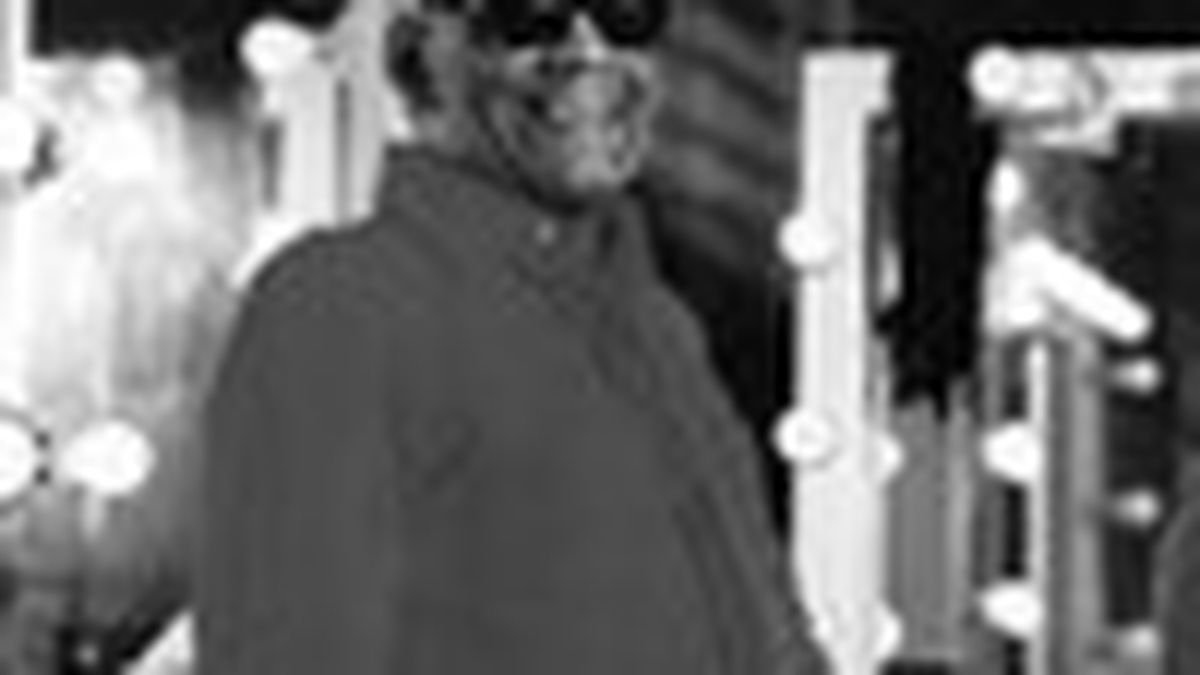Ray Charles may have been blind, but he could see through more bullshit than any American musician who ever lived. Early on in his career, there were those within his own race who told him that his use of black gospel music to back secular, often blatantly sexual lyrics was a sacrilege. Thank God Brother Ray had the good sense to ignore them, for had he not, this country would be without “I Got a Woman,” “Hallelujah I Just Love Her So,” and “What’d I Say.” Later on, he came under attack from both black and white people for releasing the two volumes of Modern Sounds in Country and Western Music. Thank God Brother Ray ignored them, too, else we might be missing the definitive versions of “Born to Lose,” “Take These Chains from My Heart,” and “Making Believe,” among others.
“At the time [1963], he was the coolest thing going — he had ‘I Got a Woman,’ ‘What’d I Say,’ and ‘Hit the Road, Jack.’ And then he goes and releases a country album with an orchestra?” exclaims John Lomax III, a 32-year Nashville music business pro who happens to be this writer’s father. Lomax remembers the time as a dreary one on the American hit parade. Rock was apparently dead — Elvis was in the army and the Beatles had yet to break, and so Lomax, then a late teenager in Houston, was listening to a lot of Charles and James Brown on KCOH and KNUZ. “[Charles] did twelve songs and defined every one of them. Sometimes somebody will come along with one cover that redefines a song, but to do it twelve times on one album is just unbelievable. He made country cool for a whole generation.”
Charles had the rare ability to make every song he sang — no matter how familiar — not just his own but also the definitive version. Take “America the Beautiful.” Outside of “Happy Birthday” and “The Star Spangled Banner” and maybe “Amazing Grace,” few songs are more familiar, and yet to hear Charles sing it is to hear it for the first time. And the last, for no other versions can touch it. There are the rarely sung lines he adopted to suit the times — Oh beautiful, for heroes proved/In liberating strife/Who more than self, our country loved/And mercy more than life, and America, America, may God thy gold refine/Till all success be nobleness/And every gain divined.
Next, he introduces the lyrics we are all more familiar with — the amber waves of grain part — by saying, “And you know when I was in school, we used to sing it something like this, listen here.” He concludes by strongly hinting at what a bunch of overpoetic crap that is. Who cares about natural beauty when we can’t get along? But now wait a minute, I’m talking about America, sweet America, you know, God done shed his grace on thee/He crowned thy good, yes he did, in a brotherhood, from sea to shining sea.
And listen to him emote and improvise — this is a man who has chosen to be a patriot in spite of having every reason not to be. He had spent the first thirty-odd years of his life thrice-cursed — he was black, blind, and an orphan, and yet he sang these lines: You know, I wish I had somebody to help me sing this … America, I love you America, you see/My God he done shed his grace on thee/And you oughta love him for it/’Cause he, he, he, he, crowned thy good/He told me he would, with brotherhood …
That stammered “he” and the “he told me he would” say it all. He is convincing himself to love his country in spite of its unfulfilled promise. The America he loves ain’t there yet, he’s saying, but there’s no good reason for it not to get there someday. After we got out of Vietnam, perhaps, or that still-to-come day when Martin Luther King’s dream comes true. In the meantime, all we can do is love our country the way a parent loves a wayward child. And try to change it.
There’s only been one occasion I can think of when Ray Charles’ version of a standard had some competition, and that’s with “Georgia on My Mind.” Though wildly different, Willie Nelson’s version sometimes suits me just as well as Brother Ray’s. The two icons have a huge amount in common. In spite of Ray being called the father of soul (erroneously, I think — Guitar Slim owns that honor) and Willie being known as a country musician, the two of them, to me, have always been jazzmen at heart. Both had instantly recognizable voices that conveyed tremendous soul and emotion, and both could phrase so well that neither ever sang a song the same way twice. Ray’s piano style — a great warm flood of notes and chords best described as the Volcanic Action of My Soul, one of his album titles — was as instantly recognizable as Willie’s staccato, offbeat guitar method.
And both men were uniters of the highest order. Just as Brother Ray did as much to bring together blacks and whites in the civil rights era as any musician, so Willie did with the “heads and the reds” in Texas and elsewhere in the South. And each man also bridged the generation gap like few others. How many of us — on finding a Willie or Brother Ray album stashed away on a shelf somewhere — have come to realize that our parents or grandparents weren’t so dorky after all? And in a time when our country is under attack from both within and without, isn’t it comforting to know that we are still a people who can produce a man like Ray Charles?














